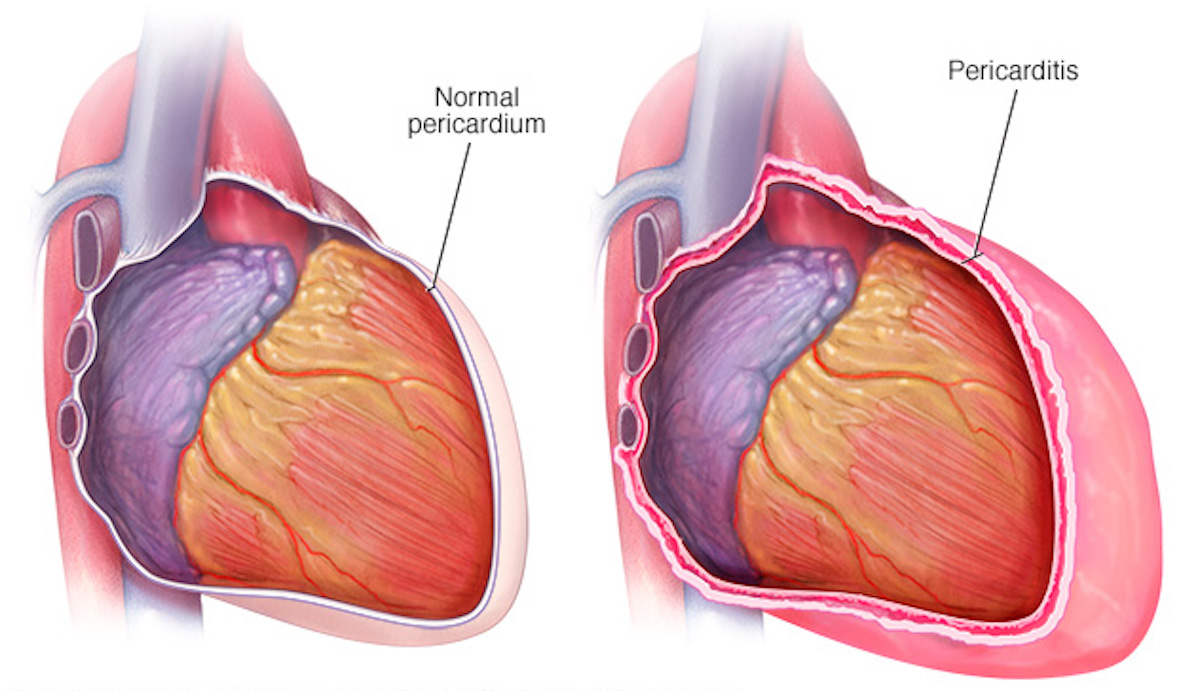Pericarditis

Pericarditis refers to the inflammation of the pericardium, the thin membrane surrounding the heart. Pericarditis can be short lived (acute pericarditis) or long term (chronic pericarditis). There are many things that can cause pericarditis, including viral, bacterial, fungal and parasitic infection. Auto-immune disorders can also contribute to the development of pericarditis, these include lupus, scleroderma and rheumatoid arthritis.
Pericarditis can cause atrial fibrillation as a result of chronic inflammation. This inflammation leads to scarring and calcification of the membrane surrounding the heart, which in turn can affect the heart’s ability to pump blood. This complication is called constrictive pericarditis, can affect the atria in the heart and contributes to the development of atrial fibrillation.
More from Things Health
-
Warning Signs That You Might Have Heart Issues
Heart disease has both genetic and environmental components, as it tends to run in families but can also be impacted by your lifestyle choices such…
-
Atrial Fibrillation
Arrhythmias occur when there's a problem with the heart electric system. In case of atrial fibrillation, the outcome is the upper chambers of the heart…
-
8 Health Conditions Caused By Diabetes
Chances you know someone who has diabetes, as it is a common disease that affects millions of North Americans. The two types of diabetes are…
-
10 Causes of Chest Pain That Are Not Your Heart
For many, an experience of chest pain leads to panic and the assumption that it must be related to the heart, worst-case scenario being a…
-
Causes and Risk Factors for Fibromyalgia
Fibromyalgia is best known as a pain disorder. As with other conditions, it can influence people in different ways. Although many experts in the field…






